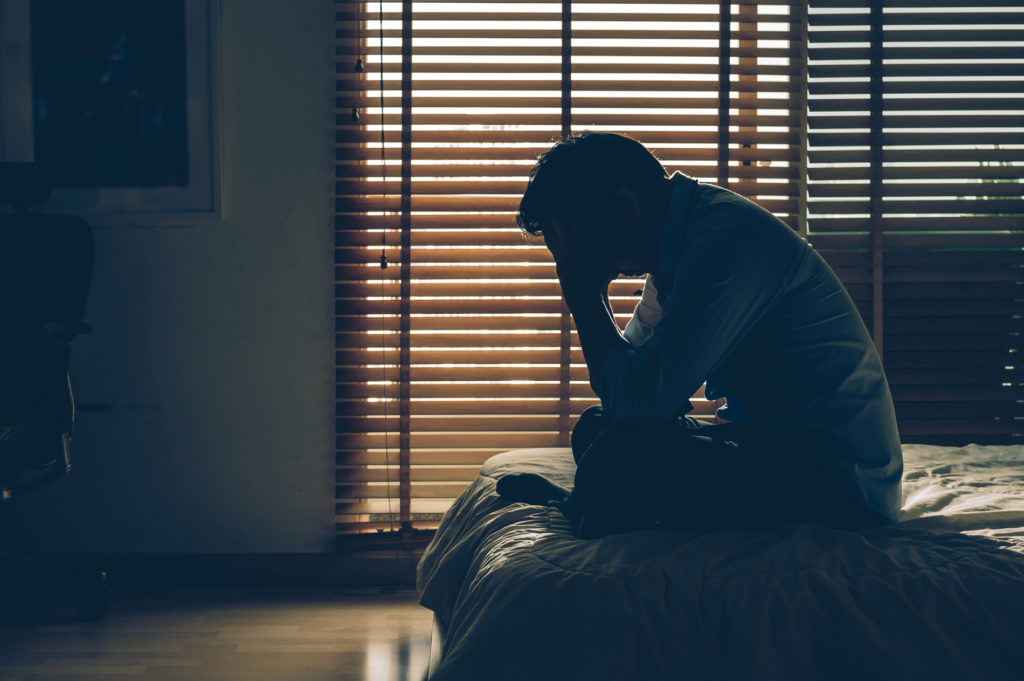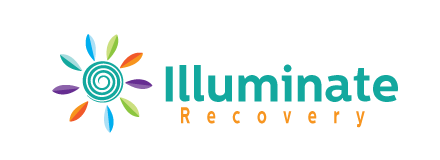The road to recovery from drug dependence is long and arduous. After achieving sobriety, it can be incredibly difficult to keep from falling back into old habits. In addition to the uncomfortable physical sensations of denying your body something it has become accustomed to needing, the pressure to keep from relapsing can itself be a powerful source of stress. That stress alone can drive a person to consider falling back on their prior unhealthy coping mechanisms. Unfortunately, there is no simple switch to flip or button to press to make the cravings go ago. However, by taking the time to create a solid relapse prevention plan, you can effectively avoid losing the progress you’ve made and the sobriety you’ve earned.
What Is a Relapse Prevention Plan?
A relapse prevention plan is a series of strategies created to help keep you from spiraling down the three stages of relapse by intervening at critical moments of your recovery. Depending on what works for you, plans can be detailed, written outlines, or general verbal techniques. What’s important is ensuring that you are prepared by providing yourself the tools necessary to persist in your sobriety. Before creating your Relapse Prevention Plan, it’s necessary to have a thorough understanding of what a relapse is and how it works.
What Is relapse?
When an individual decides to seek sobriety from drug dependency issues, they may encounter minor setbacks in the process. However, even after remaining abstinent from any vices for a prolonged amount of time, it’s still possible that they might find themselves turning back to the substances they’d initially rejected. This act of resuming the use of drugs after abstaining is called a relapse. While relapsing doesn’t occur to everyone, it’s still a relatively common
phenomenon. Roughly half of the people going through the process of recovering from drug dependency experience a relapse, and it can happen more than once. Part of what makes relapsing so dangerous is that people returning to drug use after a period of sobriety are more likely to overdose, having lost their usual tolerance during recovery. This is why it is critical to try and prevent a relapse whenever possible.
Why Is Relapse Such a Prevalent Problem?
With all the dangers involved, it may be hard to comprehend why relapsing happens so often, especially when considering that the individuals involved willingly committed to the recovery process. While the specific details may vary from one situation to another, there are a few common factors that lead to a relapse.
One of the primary reasons is that, depending on how long the person experienced drug dependency before attempting to become sober, they may be entirely unfamiliar with the kind of world and life sobriety brings. Attempting to handle all sorts of new responsibilities and challenges can be difficult under any circumstance, let alone when you have been living apart from the rest of society for years. Any perceived failure can make a person feel like they’re not suited to handle a drug-free life, pushing them to resume the behaviors and habits that feel most familiar.
Another reason is the sheer amount of pressure, both external and internal, to succeed. Motivation can be an extremely powerful tool, but setting your expectations too high can cause you to push yourself beyond your limits and encourage you to take on more than you can handle. When you have that pressure from friends and family as well, you may feel intense stress and fear of failure, to the point where your mental health starts to suffer. Because of your desire to prove yourself to them, you may be hesitant to be honest about what you’re experiencing, too. All of this repressed emotion can drive you to relapse.

Common Signs of Relapse
Relapse is more complex than one simple moment of weakness, generally occurring in three separate stages. The first stage is emotional relapse. At this point, you’re not consciously thinking about resuming drug use. However, your emotional state is primed to start driving you in that direction. Common feelings include heightened anger and anxiety, driving you to become overwhelmed and even outwardly hostile. Another sign of emotional relapse is sudden changes in habits, such as having trouble sleeping or eating regularly. These emotions and detriments to your health are usually accompanied by an urge to self-isolate and keep everything to yourself, making it more difficult for others to reach out and help you work through things in a healthier way.
Emotional relapse then deteriorates into mental relapse. At this stage, you’re actively starting to consider engaging in drug use once more. Logically you may recognize the dangers and try to remind yourself of why you wanted to quit in the first place. However, you may also begin to romanticize your drug use and the life you used to lead, lingering on only the positive feelings associated with your drug dependency. At this point, you’re more likely to engage in risky behavior, such as associate with other drug users or put yourself in situations where you know drugs will be available. As the mental relapse stage continues, you’ll eventually find yourself trying to justify drug use by promising to do minimal amounts and keep it hidden from everybody else.
Finally, this all culminates in physical relapse, where the fantasy of engaging in drug use becomes a reality. It may be a minor amount at first, but once you start using again, it’s likely that you’ll resume your previous level of activity within a short amount of time. Once you’re at the final stage of physical relapse, you will be forced to start over with the arduous process of recovery. To prevent relapse, you must address the various emotions and thoughts during the prior stages before they have a chance to take hold.

Things to Consider When Creating Your Relapse Prevention Plan
To create the best relapse prevention plan, there are a few things you should keep in mind that will maximize your chances of success.
Learn Your Triggers
Once you have sufficient knowledge regarding relapses and how they work, the next step is to work on knowing yourself and allowing others to know you as well. Each individual has different potential triggers, meaning things that might cause you to relapse by accelerating the effects of the emotional and mental stages. These could be people you used to associate with, locations where you formerly used drugs, or being in the presence of drugs.
Triggers can also be things or events that are likely to make you feel emotionally unbalanced and thus more susceptible to emotional relapse. For instance, interacting overwhelmingly negative people or being given an exceedingly stressful work assignment. The withdrawal symptoms themselves can be unpleasant and alienating, triggering you in the process.
Avoiding these triggers as often as possible will prove helpful in maintaining a healthy emotional mindset.
List Out Signs of Relapse
While everyone who relapses goes through the three stages, these may outwardly surface in different ways for different people. Consider what kind of behaviors you exhibit when battling painful feelings and sleep deprivation. Do you become overly withdrawn or start showing more aggression? Recognizing how you react will help you recognize those moments of weakness and push you to seek the support you need. Additionally, they can help others realize that your sudden changes in behavior are an important warning sign and should be regarded seriously.
Draft Potential Solutions for the Signs and Triggers Listed Above
Consider that there may be scenarios where your triggers cannot be avoided. In those cases, you must have some sort of alternate plan in place to prevent yourself from giving up on your sobriety. Expressing yourself via some sort of outlet could be a way of relieving some of that internal pressure, whether you prefer physical activity, art, reading, a DIY project, or a change of scenery. Another solution is having a clearly defined reason that led you to quit drugs. Reminding yourself of that reason can ground you. These exercises also help distract you during particularly powerful cravings.
If you start to recognize signs that you’re already going through an emotional or mental relapse, make a plan to address those symptoms. Make sure you have someone you can call, whether that’s a close person in your life or a member of an official support group. Surrounding yourself with positive influences and supportive people is key.

Keep a Positive Mindset
It’s very easy to start slipping into fear and self-doubt, but undermining yourself will only make things harder. Instead of worrying about the pressures that lie ahead of you, shift your perspective. Focus on everything you’ve accomplished thus far. Don’t be afraid to celebrate yourself or allow yourself some form of healthy reward for your present sobriety.
Have a Plan for Relapsing Too
While, ultimately, the goal of the plan is to prevent a relapse from happening, preparing for this eventuality will help you recover far more quickly. It’s important to know who you can contact and what the immediate next step should be, whether that involves a one on one meeting with a sponsor, attending group meetings on a regular basis, or entering a drug rehabilitation program.
At Illuminate Recovery, our goal is to facilitate the recovery from drug dependency, empowering people to have sober, healthy futures. That’s why we have dedicated our resources to creating a powerful Relapse Prevention program that will offer you the flexibility you need to help you or a loved one recover with minimal disruption to your life.

Having been on both sides of active addition, both the person using, and the person affected by a loved one using drugs and alcohol, Lucas has been involved in recovery since 2009. He has been working in the treatment industry since 2013. Using his personal experience and wealth of knowledge learned from professional development and immersion in the recovery field, he has spoken with thousands of families and helped hundreds of people attain long-term sobriety. In 2020, the opportunity presented to join in and start Illuminate Recovery. Understanding the importance of personalized treatment plans and the complex nature between substance abuse and co-occurring disorders, has helped Illuminate Recovery build a strong curriculum and a phenomenal staff. Illuminate Recovery now has a medical doctor who is board certified in addiction medicine and a psychiatric medical doctor who works side by side with independently licensed therapists to provide compassionate and effective treatment.

